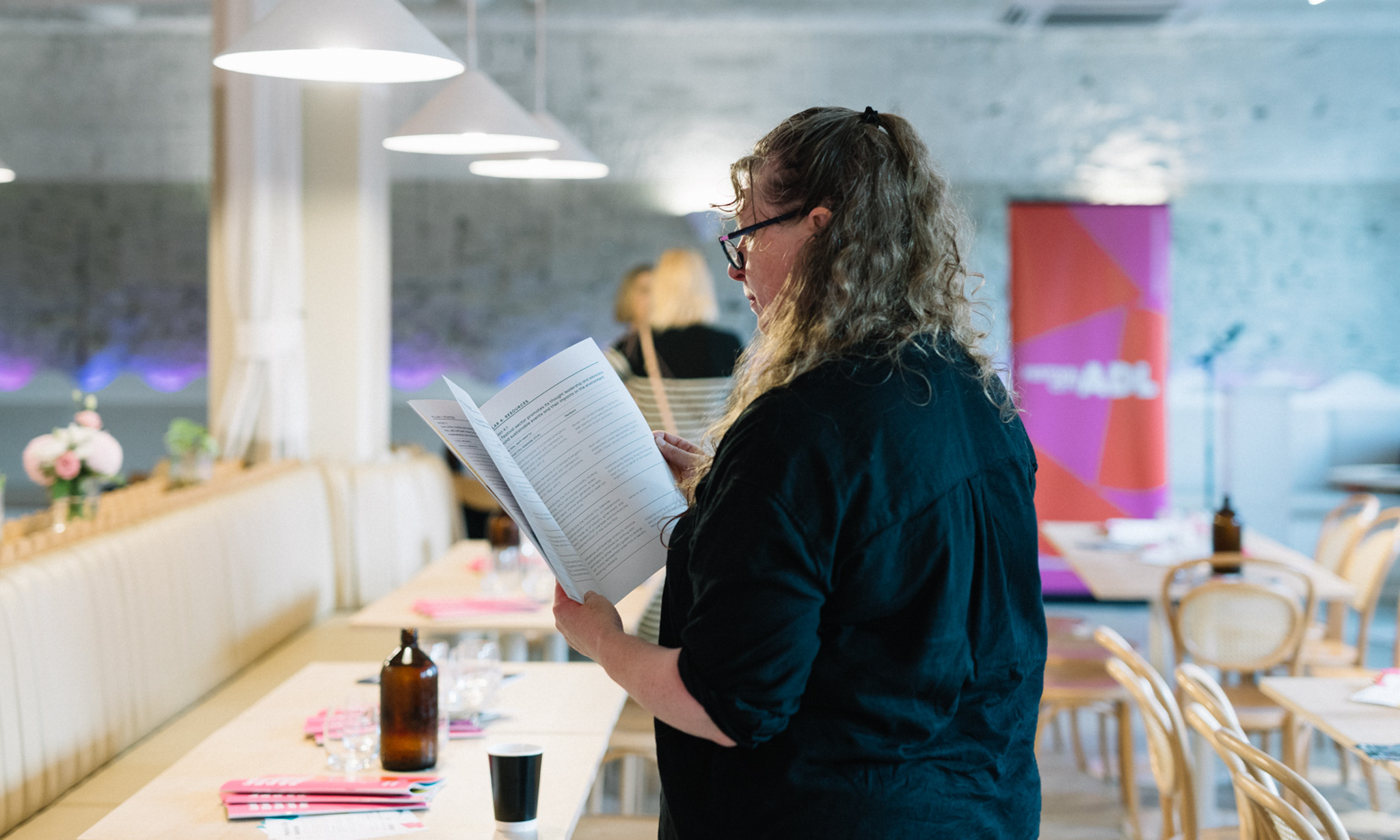Our festival sector is planning for a sustainable future

Adelaide festivals have committed to take action to address the climate crisis over the next five years. Here’s what they’re doing.
One of Justyna Jochym’s first festival memories in Adelaide that showed the power of sustainability was seeing the Adelaide Festival’s 2021 Plastic Bag Store – an installation all the way from New York, presented in Rundle Mall.
Adelaide Festival was the first major arts festival in Australia to become certified carbon-neutral, and this commitment, in combination with the art they presented, stuck out to her.
“Those two things combined, the artistic side of it while also looking after this backstage side of it, that combination really spoke distinctly to me,” Justyna says.
“I thought to myself, ‘gosh, they’re taking this really seriously’ and they’re seeing it as a responsibility and call to action to truly educate audiences.”
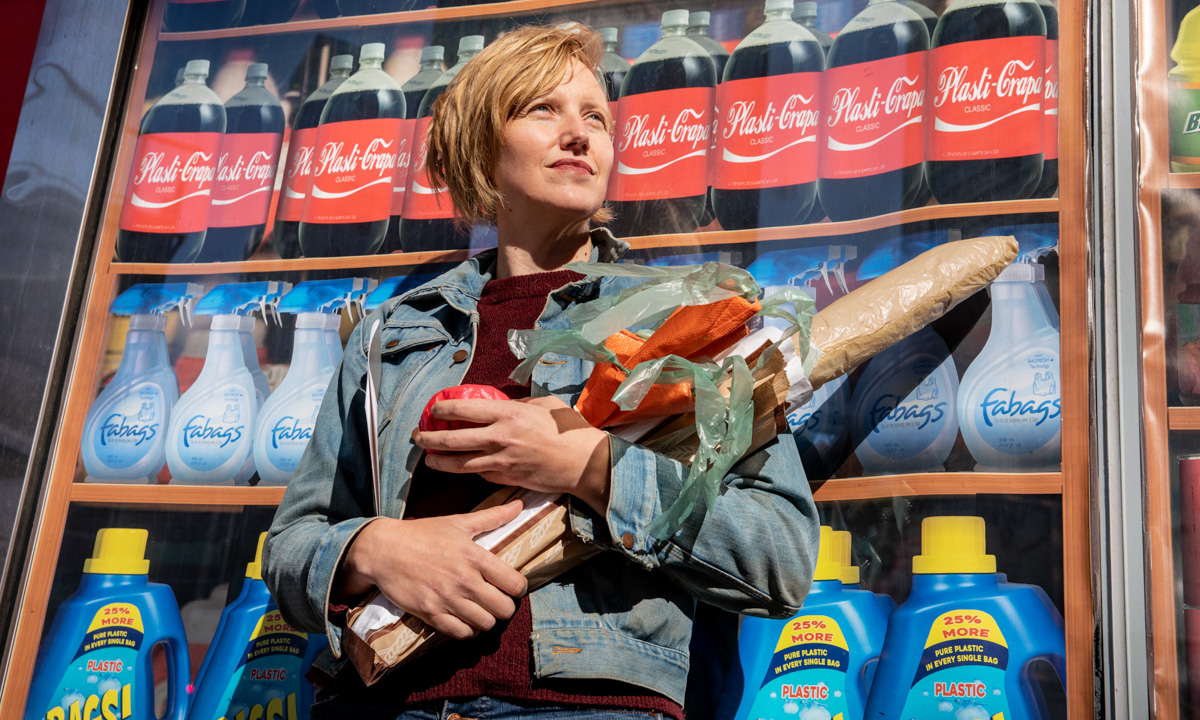
Justyna is the CEO of Festival City Adelaide, the peak body for festivals and events in South Australia. Funded through the Green Industries SA Lead-Educate-Assist-Promote grant program and with the support of Green Music Australia, Festival City has developed a Climate Action Roadmap which outlines a strategy and five-year commitment to support Adelaide’s festivals setting and achieving sustainable goals.
The roadmap was developed through two years of interviewing, surveying, observing sites, conducting research and holding workshops with people working in the sector to understand their ambitions and challenges of making a festival sustainable.
The key focus areas for festivals to track and improve their sustainability practice under the roadmap include travel, energy, food, waste and First Nations engagement. The roadmap provides a framework that targets these areas and supports all types of festivals to achieve their goals.
You might like
“What we’ve taken great care with in this roadmap is to make sure that we represent the diversity of the festivals that we have under our umbrella,” Justyna says.
“For some of them, biodiesel might be the thing, others don’t even have stages, there might be a venue-based festival or an open-access festival, so all those differences really had to be accounted for.”
The first step of the roadmap is for Festival City to hire a sustainability manager to support festivals to develop and implement festival-specific sustainable action plans that target those key areas.
“One thing that might make sense for the Fringe might not make sense for SALA, or for Feast, or for History Festival,” Justyna says.
“So we’re providing them with an expert, with a resource that can help navigate these conversations and then produce a plan that will be achievable within the next five years.”
This stage of the project is set to be completed by June 2025.
Some festivals or event venues already have sustainability goals and plans in place, and they don’t all look the same. Some focus on digital programs over paper, sorting their rubbish, or the way their stages are powered.
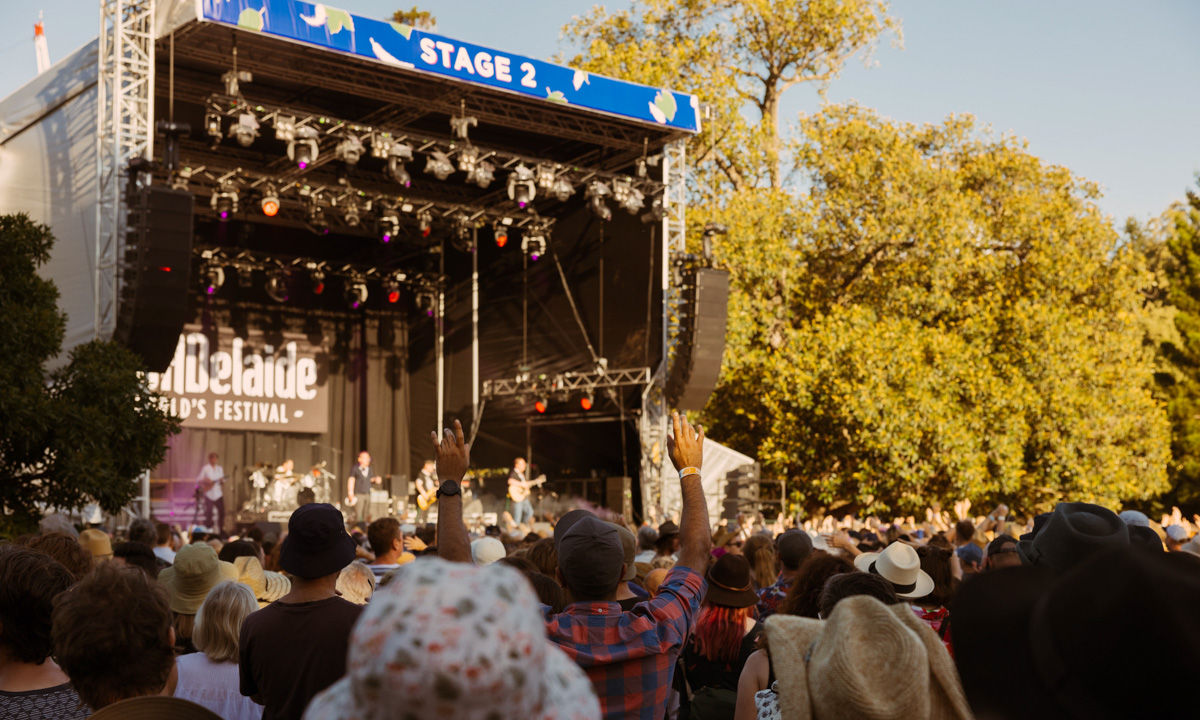
“Those are changes that maybe aren’t super sexy to audiences, because [audiences] have their paper utensils and reusable cups and that’s what is tangible here and now, but those shifts are massive,” Justyna says.
As food truck lovers and festival punters ourselves, CityMag has often questioned where our packaging and empties are getting to.
Subscribe for updates
We first took it upon ourselves to go dumpster diving for waste data in 2019, revisiting the topic this festival season to see how much rubbish our favourite festivals made and if it’s improved over time.
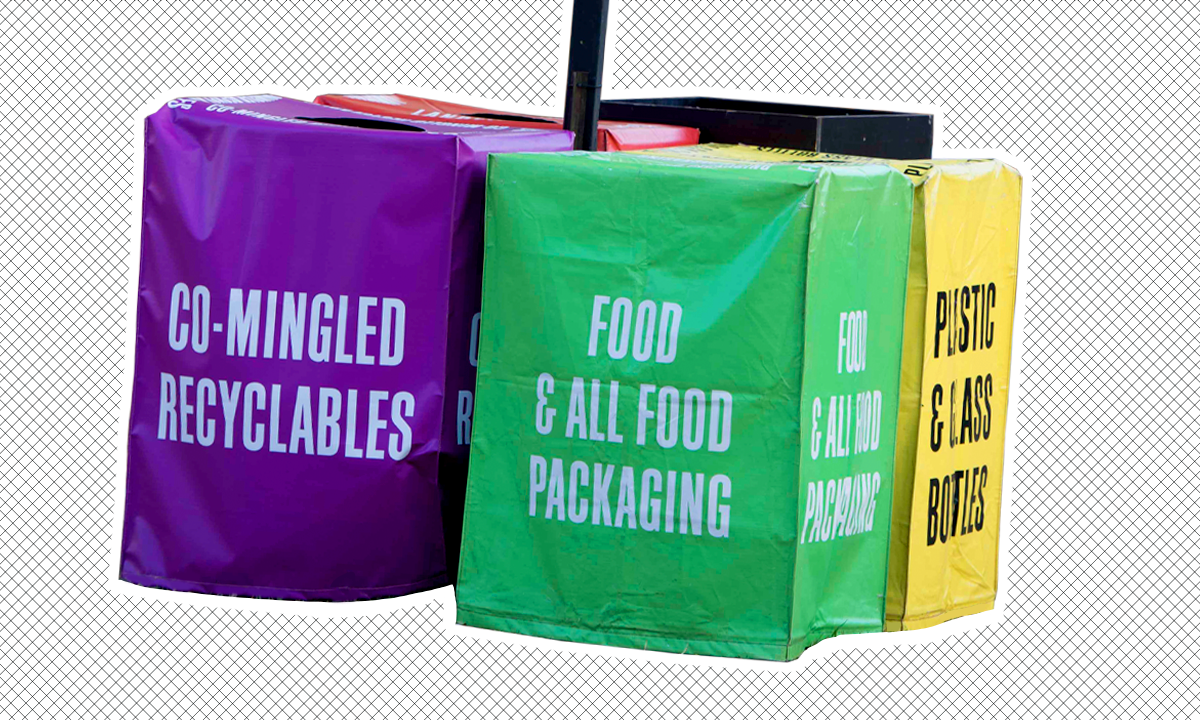
Despite our persistent phone calls, emails, Instagram DMs and even a LinkedIn nudge, there are some festivals that we couldn’t get the numbers from. So, we have no idea exactly how much waste was produced.
The Festival City Adelaide Climate Action Roadmap would change that.
One of the actions in their strategy is creating industry standards and providing centralised support for data collection and management so every festival can use that data in decision-making.
Festival City’s goal is to support the festival sector in collecting data and using it to help make environmentally conscious choices. It’s not their job to regulate the festivals based on this data.
“We’re not coming in and saying ‘you’ve passed the test’, it’s really up to the individual organisations to regulate themselves…we’re trying to progress and just build up that confidence and collective action,” Justyna says.
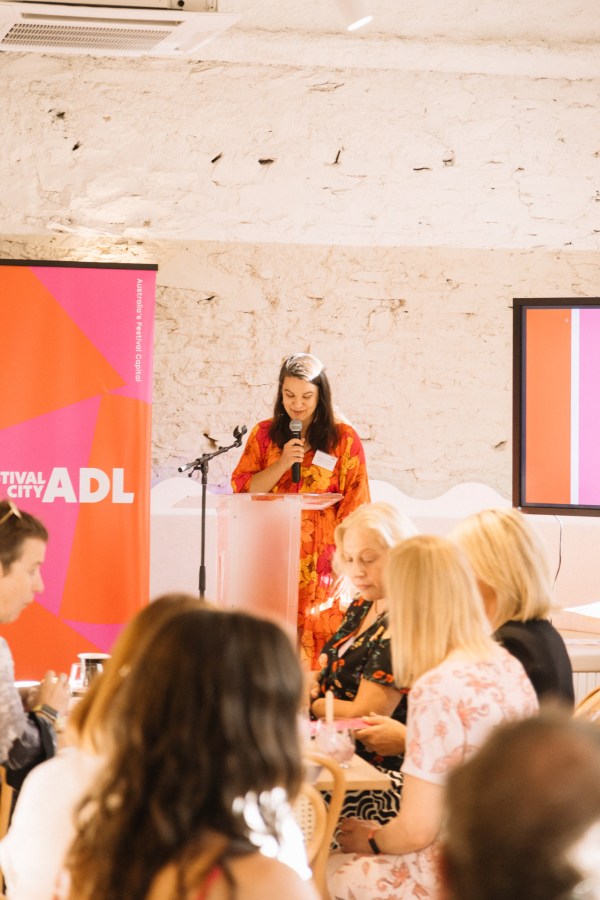
“Don’t let perfect get in the way of good,” she says.
“It can be really overwhelming to read all these commitments, and be like, ‘too hard’. It might be too hard now, but in three years time, it might be a little bit easier because we did this.”
Currently, we’re used to seeing the data on a festival’s economic impact measured: how many tickets are sold, how many hotel rooms are occupied, and how much people are spending in Adelaide because they’re here for a festival.
But by collecting and monitoring data on sustainability (those areas of travel, energy, food and waste), Justyna says we’ll be able to measure that Adelaide’s festivals are the best because they’re achieving sustainability and social impact, not just economic.
“We want people to have the world’s best festival experience,” she says.
“If they’re not experiencing a festival that is sustainable or regenerative and they’re not experiencing a festival that is driving social impact across access and inclusion, they’re not having the world’s best festival experience.
“So we need to start reporting on those things if those are our goals because more is not the answer; higher impact, higher quality is the answer.”
The Climate Action Roadmap details the strategy for achieving sustainability goals across the festival and events sector, you can read the roadmap here.
